Candidate for Vice-President (1)
One candidate, for approval
Dr. Melanie Woodin – University of Toronto
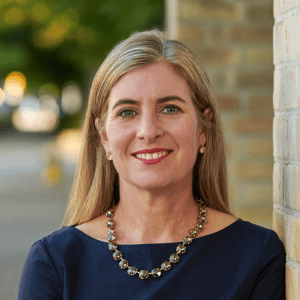
Dr. Melanie Woodin is a Full Professor in the Department of Cell and Systems Biology at the University of Toronto where she has developed an innovative, productive, and well-funded research program. She is currently the Dean of the Faculty of Arts & Science at the University of Toronto, one of the many important leadership roles she has played at the University of Toronto over the years.
Dr. Woodin has an outstanding track record of scientific productivity and achievements. Since joining the faculty at the University of Toronto in 2004, her team has spearheaded major advances in our understanding of mechanisms regulating inhibitory synaptic transmission and plasticity in the central nervous system. Of particular interest is her work on the role of excitation/inhibition imbalances in neuropathological disorders including Huntington disease, amyotrophic lateral sclerosis, and autism spectrum disorders. Her recent work showed that adeno-associated virus-mediated delivery of chemogenetic technology increased the activity of interneurons in the primary motor cortex and effectively delayed the onset of amyotrophic lateral sclerosis-associated motor deficits, promoted neuronal survival, and increased lifespan (Brain 2020). These exciting findings provide new insights into the pathogenesis and treatment of amyotrophic lateral sclerosis. The impact of this work is evident in the quality, novelty, and originality of her scientific publications.
Dr. Melanie Woodin has been a strong supporter of CAN since its inception serving in the role of Symposium Organizer (2008, 2011), Executive Board Member (2013-2016), Meeting Organizer (2016), and Chair of the Advocacy Committee (2018-2019). Dr. Woodin’s outstanding contributions to neuroscience research, effective leadership qualities, and community service make her uniquely qualified for the position of CAN’s next Vice-President.
Candidate for CAN Treasurer (1)
One candidate, for approval
Dr. Steven Prescott – University of Toronto
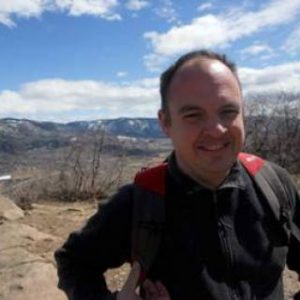
Steve Prescott is a Senior Scientist at the Hospital for Sick Children and Professor of Physiology and Biomedical Engineering at the University of Toronto. His lab combines experiments and computational techniques to study how somatosensory information is normally coded and how disruption of that coding leads to chronic pain. Investigations extend to even more fundamental aspects of neural coding and the regulation of neuronal excitability. Steve served on the CAN Board of Directors from 2019 to 2022 and has been active in numerous other areas, from leading the Neuroscience Platform in UofT’s Physiology Department to serving on the Program Committee at the Organization for Computational Neuroscience. He hopes to continue participating on the CAN Board as Treasurer, helping to ensure CAN’s continued financial wellbeing as normal activities resume in the wake of the pandemic.
Board of Directors candidates (4 candidates)
Please vote for two of four candidates:
- Mark Cembrowski
- Karl Fernandes
- Elsa Rossignol
- Louis-Eric Trudeau
Dr. Mark Cembrowski – University of British Columbia
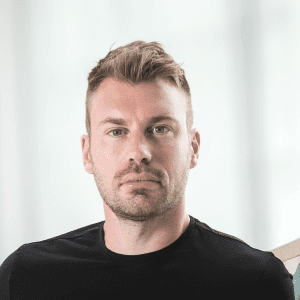
Motivation: It is a delight to do neuroscience in Canada, and I would like to help bolster our innovative and collaborative national community through a CAN board member position. Previously, I have worked with CAN on several smaller initiatives (CAN-CIHR-INMHA Brain Star Award review committee and the CAN Scientific Program committee). These opportunities to help showcase and celebrate Canadian neuroscience have been immensely rewarding. A board member position in CAN would be a wonderful opportunity to further expand my contributions to our Canadian neuroscience community.
Qualifications: As noted in the CAN bylaws, the purposes of CAN include (1) promoting communication, (2) promoting research in all disciplines, and (3) representing the interests of Canadian neuroscientists at national and international levels. It is my hope that my experience makes me well-qualified to support these purposes. My laboratory does research across molecular, cellular, circuit, and behavioural neuroscience, combining experimental techniques with mathematics, computation, and engineering. This research includes rodent work, as well as human brain work in collaborations with neurosurgeons and neuropathologists. With this background, I believe I can promote communication and research across many disciplines of neuroscience. Complementing this, I have strong ties with many neuroscientists and organizations within our country, and also currently hold or have recently held positions with the international neuroscience community (respectively, HHMI and the Allen Institute). These networks will allow me to advocate for Canadian neuroscience in both national and international settings. In collection, I believe I am well-poised to support CAN purposes and initiatives.
Dr. Karl Fernandes – Université de Sherbrooke
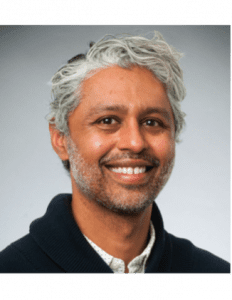
Karl Fernandes (PhD). I have been active in Canadian neurosciences research for 28 years, in the fields of spinal cord injury (UofO and UBC), neural stem cell research (MNI and Sick Kids), and brain aging and Alzheimer’s disease (U.Montréal and U.Sherbrooke). In 2020, I moved to the Université de Sherbrooke, where the current focus of my lab is Alzheimer’s disease and main research themes include cerebral lipid metabolism, adult neurogenesis, and the mechanisms underlying exercise- and dietary-based benefits (www.fernandeslab.com for more information). As someone who has benefitted from the privilege of “growing up” within our tightly knit and incredibly talented Canadian neurosciences community, it would be my pleasure to work with Board members and contribute to helping CAN fulfill its core mission– nurturing and advancing groundbreaking Canadian neuroscience and sharing our collective works with the public and policy-makers. Especially close to my heart is a longstanding desire to help the next generation of young neuroscientists to experience and benefit from our diverse, scientifically rich neurosciences community. This is illustrated by the approximately 50 students and postdocs trained in my own laboratory and previous activities such as directing the Université de Montréal’s Department of Neurosciences graduate studies programme, serving on the institutional Student Affairs committee, implementing neuroscience courses and co-organizing national/international symposia.
Dr. Elsa Rossignol – Université de Montréal
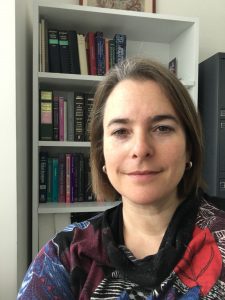
As a pediatric neurologist and neuroscientist, I actively seek to create bridges between the basic sciences and medicine through collaborations, teaching and advocacy, in the hope of advancing care for patients with neurological disorders.
My scientific contributions to the fields of epilepsy/neurodevelopmental disorders, genetics and neurobiology reflect my conviction that transversal, interdisciplinary and translational science is best suited to advance care for patients with rare developmental disorders.
Furthermore, my implication as vice-president of the Canadian Pediatric Epilepsy Network (Canadian League Against Epilepsy), my leadership in creating and co-directing the Quebec Network on Neurodevelopmental disorders (RMGA funded, 2013-2018), my active participation as co-PI in CNET, a large Genome-Canada funded initiative on the genetics of epilepsy across Canada (2013-2018), my participation on the scientific board of the Canadian Rett Association Consortium since 2015, as well as my role as a scientific reviewer on various CIHR scientific boards and multiple Canadian and international foundations over the last decade reveal my commitment to advancing neurosciences in Canada.
For the above reasons, I believe that I could contribute positively to the mission of the Canadian Association for Neurosciences and would very much like to participate as a member of the board of directors.
Dr. Louis-Eric Trudeau – Université de Montréal
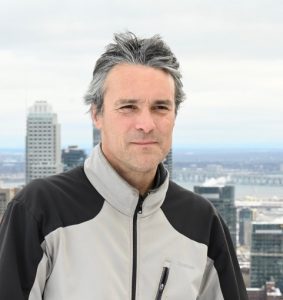
I am a professor at the department of pharmacology and physiology and the department of neuroscience at the Université de Montréal faculty of medicine. Research in my lab focusses on the study of the cellular and molecular mechanisms regulating the functions of dopamine neurons and their dysfunction in Parkinson’s disease. I would be happy to serve as CAN board member. I have been actively involved in CAN from its initial establishment and helped co-chair the second CAN meeting in Montreal in 2008. I also acted as CAN treasurer between 2004 and 2009. I have experience in leadership roles and am presently the director of the Research Group in Neural Signalling and Circuitry at the Université de Montréal. I hope to help CAN continue its very important roles during the next few years.





